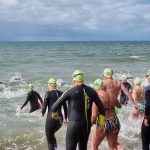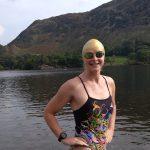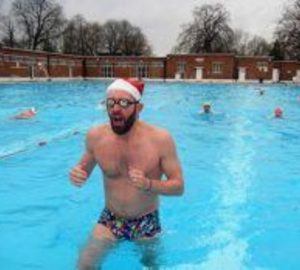Stop worrying about your finish time in open water
At a recent event I came across a young man (late teenager I guess) who was bitterly disappointed about his time in a swim as it was slower than he’d previously done and what he’d expected. Although he was a bit extreme, he isn’t alone. We compulsively check our times after swims, get anxious if the results are delayed and set ourselves targets such as breaking 30 minutes for a mile.
But should we, as open water swimmers, be so concerned? Yes, our finishing times reflect our fitness, navigation skills and drafting ability and are a measure of the efforts we’ve put in but they don’t define it. There are simply too many variables.
Start with the distance itself. Precisely measuring a course in open water is difficult enough, even with modern tools. If you do get it exactly right, winds and currents can move marker buoys and change things. Distances should only ever be regarded as approximate. Fifty metres too much or too little could easily make one to two minutes’ difference to your time.
Secondly, winds and currents will affect you, the swimmer. Even a small current against you will slow you down, and the slower you are to start with, the worse the impact will be. Chop and waves will also slow you down or make sighting difficult causing you to swim further than necessary.
Then there’s the impact (sometimes literally) of other swimmers. Being caught in a pack of sprinting swimmers at the start can be physically exhausting and leave you struggling with the rest of the race. Other swimmers can also affect your pace judgement and cause you to swim faster or slower than you intend. Drafting, if you do it well, will certainly benefit you but if you get stuck on your own with nobody to follow you may end up swimming much more slowly than planned.
The water temperature will also make a difference – either too hot or too cold – and there will be differences between salt and fresh water.
For these reasons, FINA, the international governing board for swimming, doesn’t keep open water world records. It is almost impossible to exactly replicate conditions from race to race (even at the same venue) so worrying unduly about the absolute time it takes you to complete a swim is unnecessary.
One way forward is to credit all ‘good’ results to your preparation and skill and all ‘poor’ results to bad luck and adverse conditions – or to time spent admiring the scenery. That way you should always be happy with your time. Alternatively, stop keeping records of your times (at least in open water) and instead focus on things you have more control over, like trying to swim with good technique and in a straight line.






